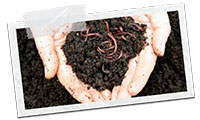Food Waste
There are many ways you can reduce the amount of organic waste going to landfill. You can step up to fight food and garden waste by making simple changes at home.
Leftovers
- Make it easy to find food that needs to be used up - create a shelf in your pantry and fridge for food that needs to be eaten first.
- Get everyone in the household to use food on this shelf first or rotate food by moving the oldest items to the front.
- Make it failproof by using transparent containers to easily see what’s inside.
- Eat the oldest items first.
- Freeze excess food.
- Cook one meal each week that combines foods that need to be used up.
- Use your leftovers as a tasty lunch.
- Preserve any unused vegetables by pickling or preserving food.
Meal Plan
- Check your pantry, then make a plan!
- Get the family to help choose the menu so you know they will eat up the food.
- Avoid recipes that need a special ingredient that you may not have or use again, or substitute with something else.
- Take stock before you shop. Check what ingredients are in your fridge, freezer and pantry to make sure you don’t buy more of the same.
- Write a shopping list and stick to it when you shop. Don’t shop when you’re hungry or you might end up buying more than necessary.
Food Storage
- Keep food where you can see it. You know how it goes - out of sight out of mind. Use clear containers and keep labels facing forward.
- Freeze food for later. Label what it is, date it and add it to your next menu plan.
- Prevent ‘freezer burn’ by freezing food in airtight containers or wrapping foods tightly.
- Remember to defrost frozen food in the fridge, especially meat and dairy.
- Separate fresh produce – certain fruits and vegetables such as ripe bananas, apples and avocados let off high amounts of ethylene, which can accelerate the ripening of produce nearby.
- Make sure your fruit bowl is not overcrowded, so ethylene gas can move around.
- Use the crisper drawer in the fridge for fresh produce – it helps trap the humidity inside keeping them fresh for longer.
- Ensure your fridge door seal is working and the temperature is not too hot or too cold. Your fridge should be between 1 - 5°C.
- Keep fresh bread in a cool place – ideally wrap bread in a tea towel and place in a breadbox or freeze it.
Composting

Composting reduces the amount of organic waste going into landfill.
By composting your food scraps and green waste, you are converting it into a useful by product that’s ideal for a garden fertiliser. It is a win-win!
There are a range of steps to successful DIY Composting. Learn how with our easy 7 step guide in our DIY Composting Factsheet in the Resources section below.
Composting Tips and Tricks

Did you know that worm tubes are ideal for the natural disposal of organic waste including fruit and veg scraps, egg shells, shredded paper and more.
Discover how easy it is to make your own worm tubes in our DIY Worm Tube Factsheet in the Resources section below.
View these videos for more tips:
Saveful App
Reduce mealtime stress and food waste in your kitchens by using the Saveful app.
Developed by Thankful for Farmers and celebrity chef, Matt Moran, Australians now have the power at their fingertips to save on their grocery bills and reduce food waste.
The free app empowers households to make meals with what's in their kitchen through accessing tailor-made recipes suitable to your specific taste, cooking skills, and budget.
Download the Saveful app for free today! Visit saveful.com.au for more information, and make reducing your food waste easy.
Resources
For more information about waste and recycling services, visit our Waste and Recycling page.





